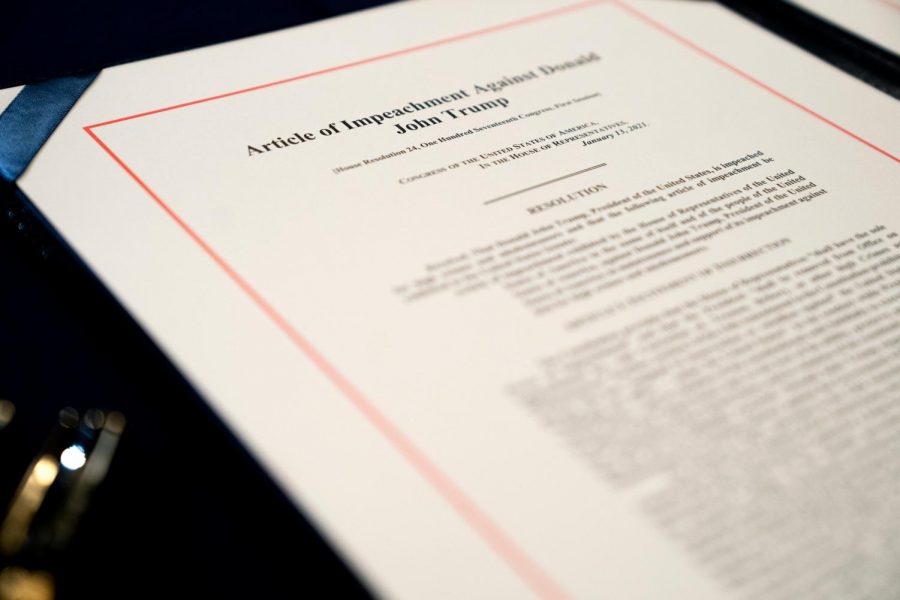Implications of an Impeachment – Trump’s Second Go Against the Constitution
After the insurrection that took place at the Capitol a mere two weeks before the transition of presidential power, politicians from both parties strove to hold Trump accountable for his actions. After a speedy trial in the House, Trump became the only president in US history to have been impeached twice.
With the majority of the Congress now being Democratic—and a few Republicans supporting the impeachment—Trump is facing a fair chance of being indicted.
However, now that Trump is officially out of office, one may think that continuing to impeach Trump would be useless, if even possible. While the Constitution does not directly address our current situation, interpreters and historians believe that there is due precedent.
The Constitution does not state a time frame in which impeachment must take place. However, there have been many similar instances in the past where a non-presidential government agent (i.e.: cabinet member, Congressional representatives, and/or officials) was impeached outside of their term.
For example, in 1797, Senator William Blout was impeached after his term; the House of Representatives started his trial after his term. Although the circumstances were different, some of the original founding members of our government and the Constitution demonstrated that it is indeed constitutional to impeach a government official after their term.
In 1876, quickly after a transition of presidential power, an impeachment trial was held in the Senate to impeach Secretary of War William Belknap, who resigned midway through the trials. Like Donald J. Trump, Belknap’s resolutions were passed by the House of Representatives before his term was over, and the trial was held in the Senate after his term and in a new presidency. Despite not being indicted, Congress still viewed the process as constitutional.
Thus, it is indeed possible. But why would impeachment be beneficial? Article 1, Section 3 explains that impeachment itself has no penalty other than the loss of Office and honor; the true consequences will be brought about or carried out by the law or party.
The Republican Party is free to hold Trump accountable for his crimes against the Constitution and the United States of America. If they choose to, the Republican Party may hold Trump accountable by prohibiting him from running again in the 2024 election as a member of the party.
Additionally, under one of the articles, impeachment leaders, including our 4th district Congressional Representative Madeleine Dean, include the violation of Section 3 of the XIV Amendment: that no person in office “shall have engaged in insurrection or rebellion,” and that if found guilty, will be prohibited from “hold[ing] any office, civil or military, under the United States, or under any State.” Therefore, if the Senate convicts Trump of his crimes—including this specific violation—Trump’s political career is over.
Through this second impeachment, it is possible that Trump may never hold governmental office again—the impeachment could strip him of political power indefinitely, which after the four years that we’ve had, many would consider a necessary win.

Kaelyn Klatte, a junior at Harriton, has been writing for The Harriton Banner since freshman year. An avid science fan, active Cross Country/track athlete,...


